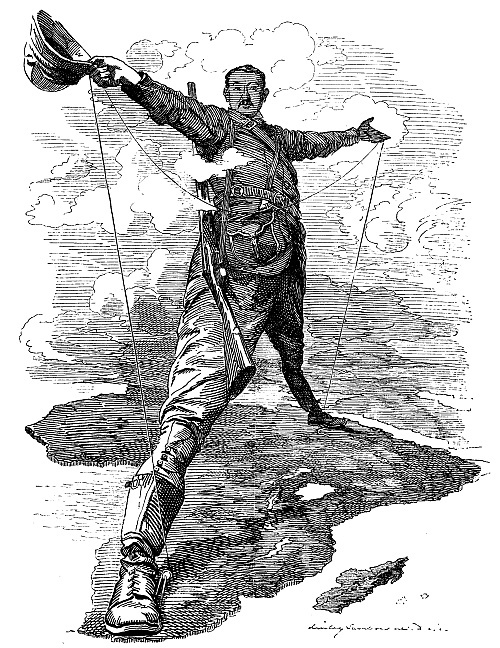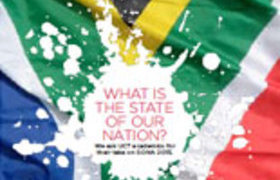What matrix made Rhodes?
13 April 2015
Cecil John Rhodes (1853–1902) was a colonialist, arch–capitalist, politician and white supremacist. He used his connections with the British Empire and no small dose of deceit to amass an empire of his own.
He bequeathed money to white men from the colonies to study at Oxford, and used the 1894 Glen Grey Act to force black men to leave home and earn (low) wages, often by working on his diamond mines. De Beers still monopolises the global diamond trade.
Rhodes craved British dominion from the Cape to Cairo. He explains in an 1877 letter: "I contend that we are the finest race in the world and that the more of the world we inhabit the better it is for the human race. Just fancy those parts that are at present inhabited by the most despicable specimens of human beings what an alteration there would be if they were brought under Anglo–Saxon influence."
His 1877 will and testament dreamed of a "secret society" that would bring the whole world under British rule. Was Rhodes just a product of his time? Mark Twain, Rhodes' contemporary, objects: "I admire him, I frankly confess it; and when the time comes I shall buy a piece of the rope for a keepsake" (Chapter LXIX of Following the Equator).
The Guardian's obituary called the "unscrupulous" Rhodes a "wrecker instead of a constructor of South African development".
Lobengula, the Ndebele leader deceived by Rhodes of his land, would agree. So would the 'natives' of the time, whom Rhodes was in full support of flogging at the smallest provocation (see the Flogging Bill).
Olive Schreiner, another contemporary, blasted Rhodes's British South Africa Company's violent suppression of the Ndebele and Shona uprisings in 1896. She wrote in 1897: "We fight Rhodes because he means so much of oppression, injustice, & moral degradation to South Africa – but if he passed away tomorrow there still remains the terrible fact that something in our society has formed the matrix which has fed, nourished, & built up such a man!"
While UCT grapples with Rhodes' legacy on a campus and in a nation still divided along colour–coded poverty lines, the need to interrogate history and find that "matrix" is as stark as ever.
 This work is licensed under a Creative Commons Attribution-NoDerivatives 4.0 International License.
This work is licensed under a Creative Commons Attribution-NoDerivatives 4.0 International License.
Please view the republishing articles page for more information.
Front page
Opinions
Photo Essay
Front page extra
Previous Editions










